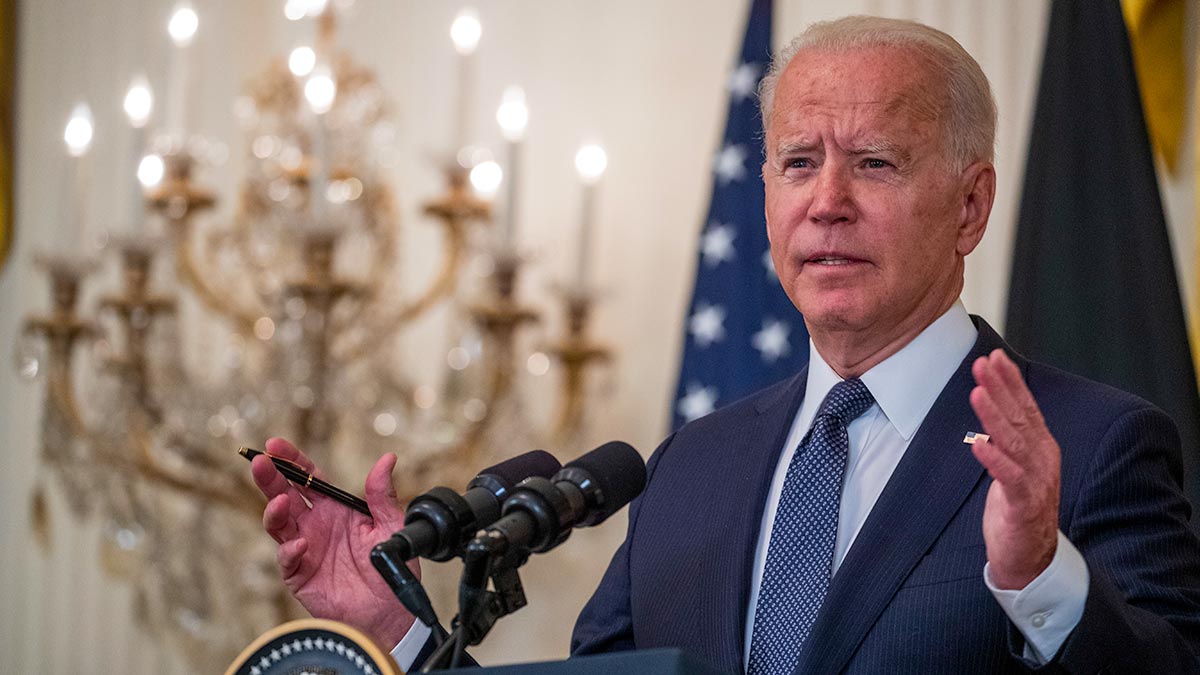Australia’s is now facing the likelihood that two of tis largest trading partners will impose carbon taxes on emissions-intensive imports, underlining the Morrison government’s growing isolation on climate policiess.
At the same time as the European Commission signed off on a proposed Carbon Border Adjustment Mechanism, the US Democrats and president Joe Biden agreed to a $3.5 trillion budget package that also includes a carbon tax on imports, and a range of new incentives for clean energy projects.
The US federal budget is expected to deliver upon a number of ambitious promises made by Democrats and Biden in the lead up to last year’s US elections, including a new Clean Electricity Standard that would dramatically increase the share of electricity generated from renewable energy sources.
Democrats are also set to legislate the reintroduction of a range of tax incentives for clean energy investment, however, there is however scant detail currently available on the proposed ‘polluter import fee’.
The Carbon Border Adjustment Mechanism put forward by the European Commission would see a range of emissions-intensive products face import fees consistent with the price of carbon units under the European Emissions Trading Scheme.
Emissions permits under the European ETS are currently trading above €50 per tonne (A$80) – but it is unclear what sort of price might be levied on imports under the scheme being considered by the United States congress.
Details of the two border tax schemes come as US president Biden signed a new cooperation agreement with German president Angela Merkel on a range of climate measures – as Biden brings an end to the isolationist approach taken by the Trump administration.
Germany is the largest economy within the EU, and the new partnership will focus on clean energy technologies and push for stronger climate policies.
“We have to up-the-ante, what happened is we talked about when the Paris Accord was set, we thought we had established just how serious it was, but things have gotten much more dire since even that date,” Biden said.
The moves by two of the world’s largest economies to levy carbon prices on trade is designed to put additional pressure on countries seen to be not pulling their weight on climate efforts – a category that includes Australia.
“We can’t be ‘Uncle Sucker’ where other countries, led by China, take advantage of what we are going to ask our country to undertake,” Democratic Senator Ed Markey, who has been a long-time campaigner for stronger climate policies, said following approval of the budget proposal.
Labor’s shadow minister for climate and energy, Chris Bowen, said the moves being taken by Australia’s traditional trade allies to increase their cooperation on climate showed how the Morrison government’s refusal to step up its action on climate change is putting Australian jobs at risk.
“Scott Morrison’s inaction on climate change has exposed Australian exporters to higher tariffs after the European Union and United States both moved to impose carbon border levies overnight,” Bowen said.
“The EU and the US are likely to be the first two dominoes to fall among Australia’s major trading partners as nations around the world impose carbon tariffs.”
“Australians will be paying a carbon price, but it won’t be imposed by an Australian government – it will be by governments around the world,” Bowen added.
Australian Industry Group chief Innes Willox downplayed the potential economic threat of the carbon border adjustment mechanisms, but stressed that it was crucial for the Morrison government to engage in negotiations around how they might apply to Australian industries.
“To not engage in proper negotiation and discussion would leave Australian business unrepresented at a time when many of our markets are moving in this direction. The outcome needs to be that Australian industry can compete in transparent markets and on a level playing field,” Willox said.
“Australia’s policy response should be to enter discussions to ensure that our businesses are treated fairly and our high-quality emissions data is accepted at the European border. The carbon tariff genie is out of the bottle and not engaging isn’t the answer, especially once other countries start to introduce their own carbon costs at their borders.”



